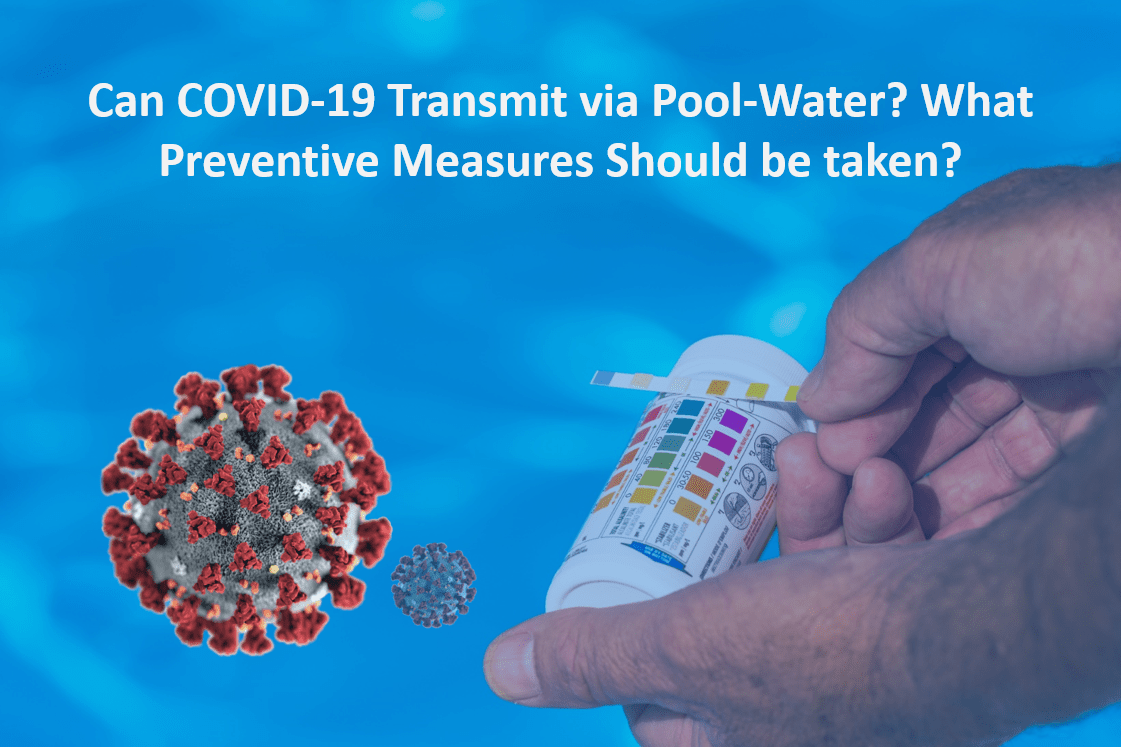The threat of COVID-19 transmission is undeniable. The Environmental Protection Agency (EPA) has ensured that there are no traces of coronavirus in public drinking water systems and the Centers for Diseases Control and Prevention (CDC) has stated the risk of transmission through drinking or recreational water to be low. However, considering evidence of COVID-19 airborne transmission and via contaminated surfaces, the threat of COVID-19 contamination via water sources still is a looming concern for many. Remnants of the virus has been found in samples from wastewater plants which has ben used to forecast outbreaks; however, it should be noted that the treatment process would kill the virus. So, it is clearly understood that people are concerned about COVID-19 proliferation via water from swimming pools, spas, and hot tubs, and many more. This post answers if COVID-19 can spread through such public water sources or is it waterborne at all? The preventive measure to be taken at public utility water sources are also discussed further.

Can COVID-19 Transmit via Pool-Water? What Preventive Measures Should be taken?
Is COVID-19 Waterborne? Can it transmit via Pool Water?
The research lacks the potential to claim the waterborne nature of the virus causing COVID-19. However, according to studies published by a team from the University of North Carolina, in the journal “Survival of surrogated coronaviruses in the water”, coronavirus shows similarities to original severe acute respiratory syndrome viruses (SARS) like mouse hepatitis (MHV) and transmissible gastroenteritis (TGEV). SARS-CoV-2 is found to survive in water for several days. Also, the CDC has stated the survival of coronavirus in sewage water up to 2-14 days if not sanitized and disinfected immediately. Based on these studies, the existence of coronavirus in water cannot be overlooked or denied, however, it is not declared waterborne either.
Therefore, if water at public utility sources and recreational swimming pools and spas, aren’t sanitized and disinfected effectively, then the chances of COVID-19 proliferation via water can be prevented. To achieve this, several preventive measures must be taken.
Preventive Measures against COVID-19 at Public Water Sources
Water disinfection levels must be maintained and sanitization residuals must be regularly checked. Only effective methods of water sanitization must be adopted to purify water from swimming pools and other public water sources. The following water disinfection techniques can be utilized as preventive measures.
- Ionization: Ionization is one of the most effective pool water sanitization techniques, which uses metalic ions for deactivating the microbe DNA structure. These transition metals are toxic to microorgamisms while safe at the manufactures suggested levels.
- Ozone Injection: Ozone (O3) is generated onsite by utilizing an energy source to split oxygen molecules and crate ozone. This naturally occurring reactive gas is then injected into the water stream. Ozone has a high oxidation reduction potential that destroys a microbe’s DNA. Though shortlived, it also can prevent the growth of microbial contaminants and oxidize chemical byproducts. The ozone generators can also be installed for periodic ozone injection which uses corona discharge technology to strongly oxidize water.
- Ultraviolet (UV) Disinfection: UV disinfection is a technique of terminating the growth of microbial infectors. The UV radiations are known to degrade the DNA of microorganisms, which eventually leads to the termination of microbial growth. Like ozone, UV sanitation is immediate and there is no sustaining sanitation residual and is best used with another sanitation method.
The above water sanitization techniques are chlorine-free; therefore, disinfection byproduct hazards are not a concern. In addition to these water sanitization methods, preventative measures such as like consistent water filtration, proper cleaning of filters, reduced bathers, and frequent water change for spas and hot tubs is recommended.
To reap the benefits of the above-mentioned water sanitization techniques, quality equipment must be procured from trusted manufacturers or suppliers like Intec America. The company offers several effective water sanitization solutions. They were the first to adopt NASA’s copper-ionization technique, and their extensive experience and quality of products add value to your safety during and after COVID-19.
Recent Blog Posts
- What is the Best Chlorine-free Treatment for Your Swimming Pool?
- 5 Benefits of Using Reverse Osmosis Systems for Water Filtration
- Ozone Water Treatment – Benefits and Uses Explained
- Pool Chlorine Shortage in 2021 and Effective Chlorine-free Pool Alternatives
- Pool Care Tips That Make the Pool Maintenance Effective
- Guide to Water Softener Issues, Maintenance Tips, and Replacement
- Hot Tub Chlorine Alternatives: What is Right for You
- Point-of-Use Vs. Point-of-Entry Water Treatment Systems: Features and Comparison
- Water Softener Vs Reverse Osmosis: What is Right Your Application?
- How Often Should You Clean a Swimming Pool?
- Opening your Pool
- How to Prepare Your Swimming Pool for Summer?
- How Often Should You Test Your Pool Water?
- 9 Healthier Alternatives to Chlorine for Swimming Pools


